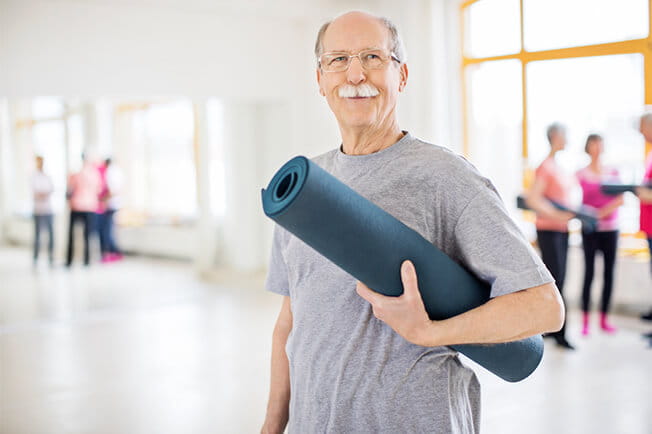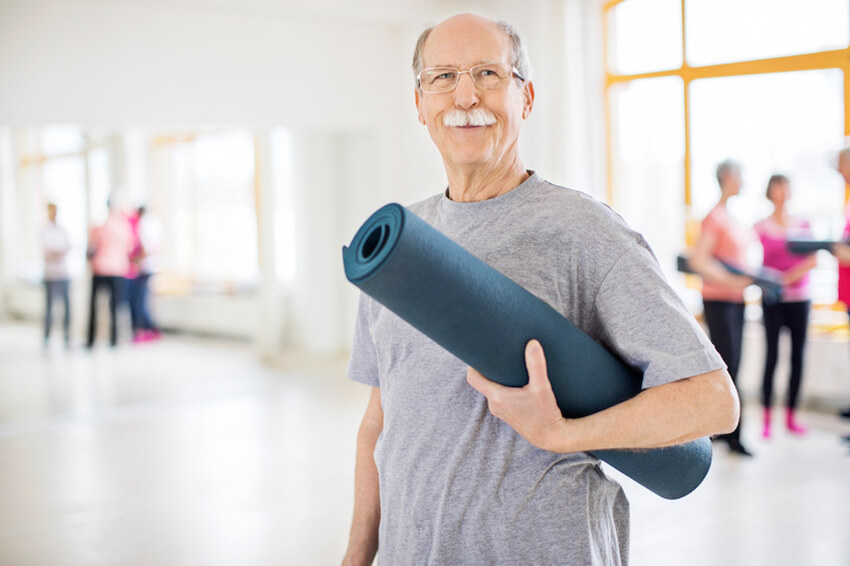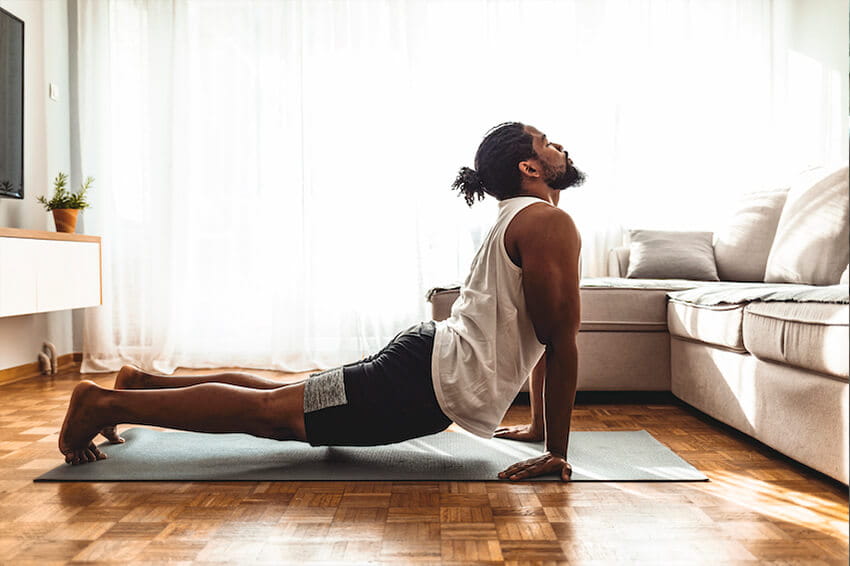Yoga for alcoholism: Healing mind, body and spirit

Yoga can be a powerful tool for people who are recovering from alcoholism or addiction. Because yoga involves mindfulness, deep breathing, and gentle movements, the practice helps heal and connect the mind, body, and soul.
There is a long list of physical and mental health benefits linked to regular yoga practice for people recovering from alcoholism, but one of the more profound benefits is learning to see and work through difficult emotions.
According to Carolyn Smith, a behavioral health therapist at Mirmont Treatment Center, part of Main Line Health, people suffering from addiction or alcoholism tend to reach for a substance to push away challenging emotions. Through yoga, they can learn that it's okay to let these emotions arise and watch them as they pass.
There is no one-size-fits-all approach to yoga for alcoholism. For some people, simply being present on a mat for a few minutes is enough. For others, a longer, more regular restorative or gentle flow practice can help people cultivate self-awareness and honor their body.
What exactly is yoga?
Yoga is a practice of wellbeing, which is achieved through breath control, mindfulness, and various physical postures.
Despite how it is often portrayed, yoga is not an exercise and it's not a religious practice. It's not exclusive to gender, body type, age, or nationality. "It's a way to connect with ourselves," says Smith.
Through yoga, people can be fully present and cultivate self-awareness. At Mirmont Treatment Center, Smith guides patients through a meditative gentle flow featuring various positions. Syncing the breath to each movement is a key component of yoga.
During the practice, she encourages people to feel and sit with any emotions that come up. A lot of people who are using yoga to stop drinking alcohol have never had any exposure to the practice before. Smith gives patients options for how they can sit and move on their mats so they can help their mind and body heal. Many patients are also dealing with pain management issues, so modifications are available to help people with different types of pain develop an individualized yoga practice.

What are the physical health benefits of yoga for alcoholism?
Yoga is all about balance and finding that balance both on and off the mat. According to Smith, yoga also involves diet, what we put in our bodies, and how we honor ourselves. Many people hurt and mistreat their bodies prior to coming into treatment, and yoga is a way to honor the body and let it heal, says Smith.
A regular yoga practice can strengthen the musculoskeletal system. It can also boost flexibility, strength, and balance. Yoga can help alleviate arthritis pain, boost heart health, and improve metabolism.
Because yoga focuses on deep breathing, it can also calm the central nervous system and help people sleep better.
What are the mental health benefits of yoga for alcoholism?
According to Smith, there are a ton of powerful studies showing that yoga can be incredibly helpful for alcohol recovery. People learn how to feel safe in their bodies, she adds.
According to Smith, it's not uncommon for difficult emotions to arise during yoga. Smith encourages people to let these emotions out and to not push them away. "Substance use numbs [emotions] and helps us run and hide from them," she says. In yoga, people can watch those emotions bubble up to the surface, be present with them, and then work through them.
For some people, this is the very first time that they allow themselves to feel these emotions, Smith says. Through yoga, people can learn that they can cope and come out stronger on the other side. "Practicing yoga teaches us that sensations don't last forever," she adds.

What is the best type of yoga for alcohol recovery?
Smith advises patients who are new to yoga to look for beginner yoga classes. This is a good place to start and can help train the body and get them accustomed to a yoga practice.
Smith also recommends restorative and gentle flow yoga. Restorative and gentle flows are restful practices that can relax the mind and body and enhance your wellbeing and mood. They mix mindfulness and gentle breathing and help people become more aware of what's going on in their bodies.
Yoga can be a very powerful barrier to relapse, according to Smith. "If we make yoga a priority over our old unhealthy behaviors such as substance use, we can occupy ourselves with it while our cravings subside," she adds.
How to start practicing yoga for alcohol recovery
There is no singular approach for starting a yoga practice. Smith recommends searching for beginner or restorative yoga classes in your community or online.
For some people, simply showing up and being present on their mat is enough. Go slow, and take it one step at a time. There are so many different levels of yoga, so go at your own pace and build up gradually. Don't be surprised if some emotions come up. "Recognize that there is a beginning, a middle, and an end to it — and stay with it," Smith advises.
Yoga helps people learn how to self-regulate. If a craving comes up, people can roll out their mat, slow down, and take their mind off reaching for a substance. Smith says even spending two minutes on the mat can have a profound effect.
"With yoga, we're learning how to train ourselves to slow down, to practice the pause, and to regulate ourselves in the moment," she says.
Mental and emotional well-being are integral to a healthy life. When people suffer with mental illness or drug and alcohol abuse, it significantly impacts all aspects of their lives and their loved ones.